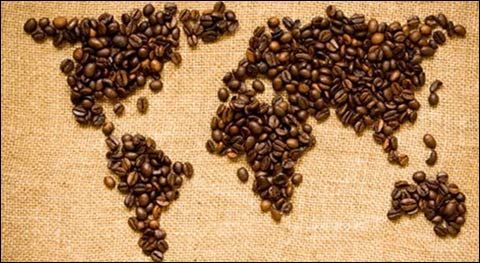Climate change impacts global production Coffee prices may soar

Coffee is now a popular drink in the world.
Global coffee production in major coffee producing areas, including Brazil, has been greatly reduced due to climate change, and coffee prices are likely to soar in the future, Fortune magazine said recently. However, the price of coffee will not rise this year-at least not by much. But there are signs that a large number of speculators are rushing into the market.
The article points out that several factors seem to be driving up coffee prices: an outbreak of a disease called leaf rust in Central America. The disease, which is thought to be linked to climate change, has hit production in the main coffee producing area. Prolonged drought and unusually cold weather have caused Vietnam, the world's second-largest coffee producer, to lower its harvest forecast for Robbosa beans, which is mainly used to produce instant coffee. In addition, the rainfall in the coffee-producing areas of East Africa is also seriously insufficient.
But a series of events in Brazil involving climate change may be the main factor causing traders in international markets to raise prices sharply. As the world's largest coffee grower, Brazil accounts for about 40% of global coffee production. The state of Minas Gerais, located in southeastern Brazil, accounts for about 25% of the country's coffee production. Rainfall in December, January and February (usually the month with the heaviest rainfall) was only 10 per cent of normal levels, while temperatures rose well above average. The non-governmental organization Coffee and Climate says the weather in Minas Gerais has been extremely unusual in recent months. For many coffee growers, this extreme weather is a disaster.
Commodities experts say coffee production in Minas Gerais is likely to fall by as much as 35 per cent this year, while total production of Arabica beans in Brazil is likely to fall by 18 per cent. As the global demand for coffee continues to soar in recent years, farmers are scrambling to plant more coffee trees. And these saplings are the most vulnerable to water shortage. In addition to yield, coffee farmers and traders are also concerned that adverse weather may affect the quality of coffee beans.
Brazil's climate model has been undergoing considerable changes in recent years. Drought and increasingly unstable weather patterns will hit large parts of Brazil. Coffee production around the world is likely to decline as temperatures rise, according to a new report released by the Intergovernmental Panel on Climate change (IPCC).
Fortune pointed out that the price of Arabica beans on the world market, the most popular type of coffee, has climbed to about $2 per pound, nearly double that of a year ago. For consumers, however, the price of coffee is unlikely to rise this year-at least not by much. Most large coffee shops tend to buy coffee in the so-called futures market, that is, they usually lock in the current purchase price years in advance. In addition, there was a bumper harvest of coffee beans last year, and traders are still storing large quantities of coffee beans. But there are signs that a large number of speculators can't wait to enter the market.
Important Notice :
前街咖啡 FrontStreet Coffee has moved to new addredd:
FrontStreet Coffee Address: 315,Donghua East Road,GuangZhou
Tel:020 38364473
- Prev

Vietnam's coffee exports may reach US $3 billion in 2014
Du Henan, vice president of the Vietnamese Coffee-Cocoa Association (Vicofa), said Vietnam exported 500000 tons of coffee in the first quarter of 2014, the Vietnam Economic Times reported. It is estimated that in 2013 and 2014, the export of coffee will be no less than 1.5 million tons, with an export value of about 3 billion US dollars, an increase of 20 per cent over the same period last year.
- Next

Investment Analysis and Prospect Forecast of Chinese Coffee Industry
Coffee, tea and cocoa are called the three major drinks in the world. Coffee tree is a small evergreen tree of Rubiaceae. Coffee for daily consumption is made from coffee beans combined with various cooking utensils, and coffee beans refer to the nuts in the fruit of coffee trees, which are then roasted by appropriate roasting methods.
Related
- What brand of black coffee is the most authentic and delicious? what are the characteristics of the flavor of the authentic Rose Summer Black Coffee?
- Introduction to the principle and characteristics of the correct use of mocha pot A detailed course of mocha pot brewing coffee is described in five steps.
- Which is better, decaf or regular coffee? how is decaf made?
- How much is a bag of four cat coffee?
- How about four Cat Coffee or Nestle Coffee? why is it a cheap scam?
- Which is better, Yunnan four Cats Coffee or Nestle Coffee? How about cat coffee? is it a fake scam? why is it so cheap?
- How about Cat Coffee? what grade is a hoax? which instant coffee tastes better, four Cat Coffee, Nestle Coffee or G7 coffee?
- Process flow chart of coffee making-Starbucks coffee making process what coffee tastes good at Starbucks
- The top ten best coffee beans in the world Rose summer coffee or Tanzanian coffee tastes good
- Yunnan four cat coffee is good to drink?_four cat coffee is a big brand? four cat blue mountain coffee is fake?

